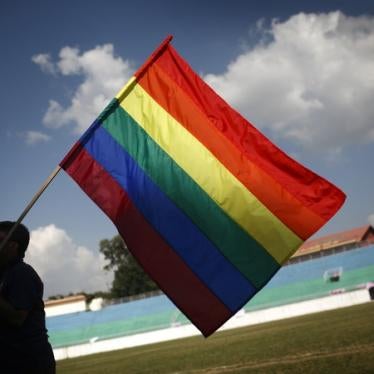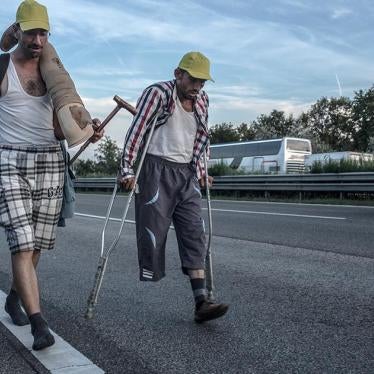When the organizers of this week’s World Humanitarian Summit consulted people from aid organizations and people affected by disasters and conflicts about their priorities, addressing the neglect of older people was rightly a key concern. Now the governments and others that met in Istanbul should ensure that the often-overlooked needs of older people in crises get the attention they need and deserve.
Through my work at HelpAge International, I’ve seen first-hand the disregard and marginalization that older people often face in crisis situations. In South Sudan, for instance, older men and women displaced and living in camps told me that, before HelpAge came, no one had consulted them on their needs. This neglect is disappointingly common, and it means that the most vulnerable people – the very people who need help the most -- often don’t get it.
Warda, an 85-year-old Syrian woman living in Lebanon, told us, “I know that humanitarian aid might be helping but only for those who can go and get it. How am I supposed to get this help if I can’t even leave the room?” In this case, access to transportation would help Warda to reach the aid she needs. But often access isn’t enough. Even when older people can reach services, the services that governments and humanitarian agencies provide often don’t address their specific medical or nutritional needs.
The growth of emergencies in middle-income countries such as Syria and Ukraine means that older people are increasingly at risk from interruptions in treatment they had been getting for diseases such as diabetes and hypertension. These interruptions are debilitating and can be fatal. In Jordan, older Syrian refugees told me how hard it was to get the medicine they had been taking, with some even risking the dangerous journey back into Syria to get it.
The summit this week offered an opportunity to address these glaring deficiencies and to promote truly inclusive aid efforts that address the specific barriers and risks people like Warda face. As our contribution, HelpAge has collaborated with other aid groups to identify the key actions necessary to ensure assistance for all vulnerable groups, impartially and according to need.
In the newly formulated Inclusion Charter, we set out five key steps to support inclusive humanitarian responses, helping older people and other vulnerable groups in crises. With the summit over, we urge aid organizations committed to impartial and inclusive response to endorse the Inclusion Charter, and to follow its guidelines.
By Marcus Skinner, HelpAge International








